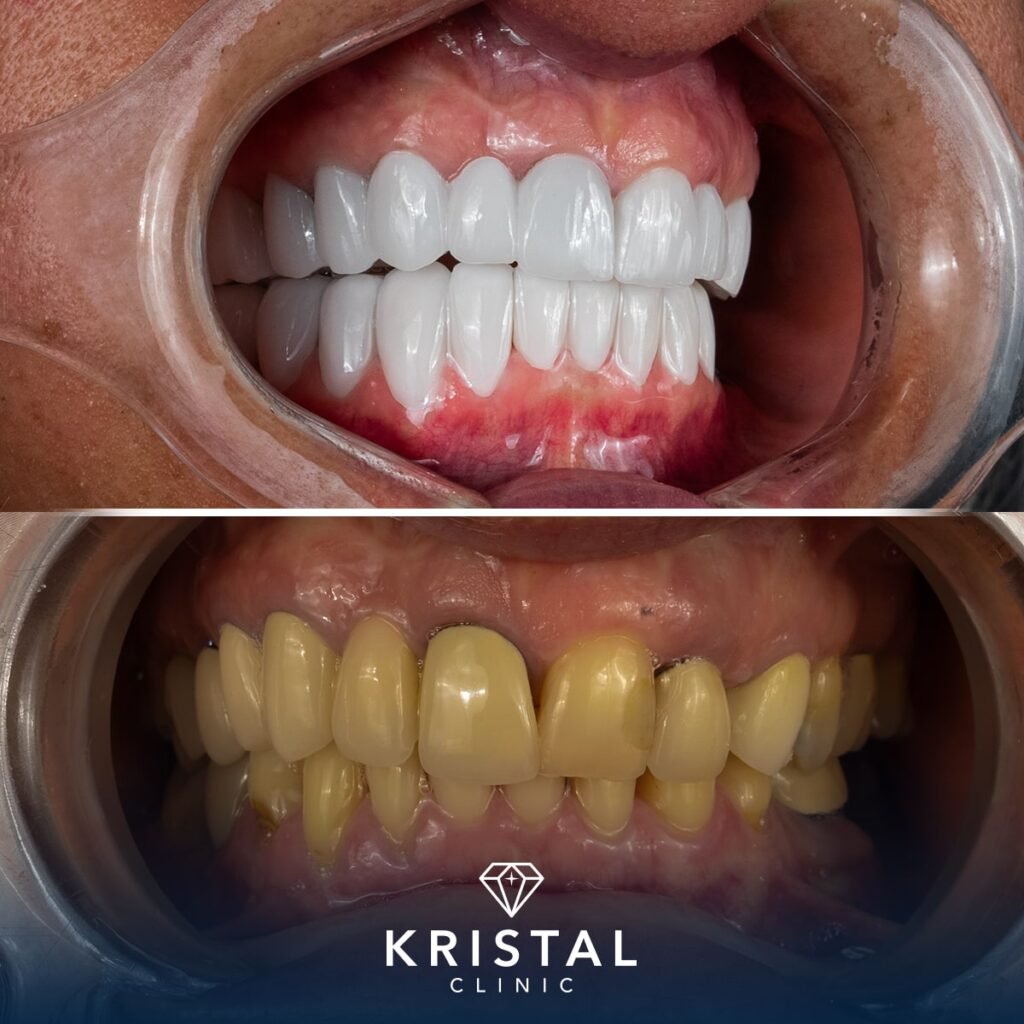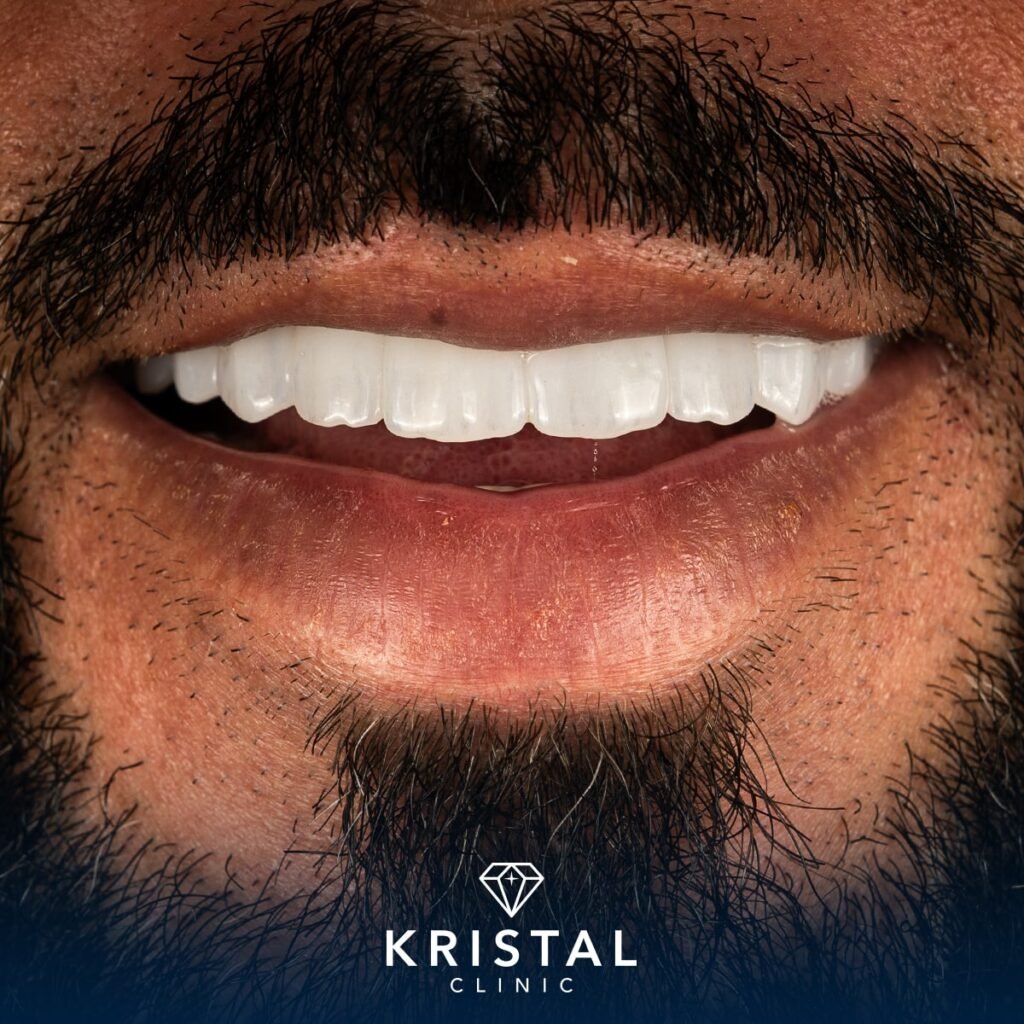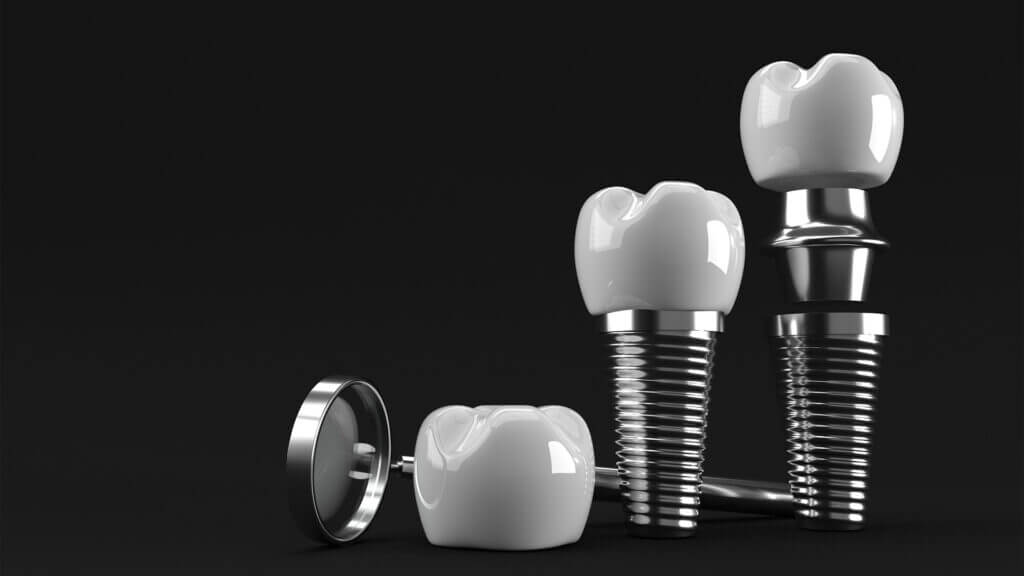By Dr. Ahmet Yılmaz, DDS | Board-Certified Implantologist | Last Updated: December 2025
If you are researching solutions for missing teeth, understanding the different types of dental implants is your essential first step. This isn’t a one-size-fits-all decision; the ideal choice depends on a precise formula: your jawbone health + the number of missing teeth + your long-term aesthetic goals.
This definitive 2025 guide is designed to be your complete resource, providing clarity on the materials, structural options, and procedures. Whether you are looking for the best type of dental implant for a single tooth or investigating advanced types of full mouth dental implants, we will provide the framework you need before you speak to a specialist. To explore all our services, start here: Dental Implant .
Table of Contents
ToggleWhat This Guide Covers (Quick Navigation)
✔ Structure: Endosteal, Subperiosteal, and Mini Implants.
✔ Materials: Titanium vs. Zirconia.
✔ Full-Arch Solutions: The All-on-4® and Zygomatic techniques.
✔ Cost Context: How the various types of dental implants cost varies globally.
The Structural Foundation – Endosteal, Subperiosteal, and Mini
Dental implants are artificial tooth roots, typically made from titanium or zirconia, designed to replace missing teeth permanently. The implant fuses with your bone through a process called osseointegration, providing unmatched stability and durability. When we analyze the different kinds of dental implants, we first categorize them by how they integrate with your jawbone.
Endosteal Implants: The Gold Standard “In-the-Bone” Solution
This is the most common type of dental implant globally, used in over 90% of cases. An endosteal implant is a small screw-shaped post placed directly into the jawbone, acting as an artificial root. Over several months, it fuses with the bone in a process called osseointegration, providing superior stability. This is why dental implants endosteal procedures are considered the benchmark for success.
For a deep dive into this proven method, read our detailed Endosteal Implant Guide.
Subperiosteal, Mini, and Specialized Implants
These different dental implants are used for specialized cases based on the patient’s anatomy. The table below compares the core structural differences.
| Feature | Endosteal Implants (Standard) | Subperiosteal Implants (Rare) | Mini Dental Implants (MDI) |
| Placement | In the jawbone. | On the jawbone, under the gum. | In the jawbone (narrower post). |
| Bone Density Need | High/Moderate (Gold Standard). | Very Low/Insufficient (Sits on top). | Moderate/Limited (Requires less width). |
| Primary Use | Single/Multiple Teeth, Full Bridges. | Severe Bone Atrophy (Alternative to grafting). | Stabilizing a loose lower denture. |
| Invasiveness | Standard surgical procedure. | More invasive (requires full flap to place frame). | Minimally invasive (often no incision/sutures). |
For more information on the functional limitations of the narrow option, see the Disadvantages of Mini Dental Implants.

The Building Blocks – Materials and Components
Understanding the actual parts is key to appreciating the longevity of your restoration.
Titanium vs. Zirconia: What are Implants Made Of?
When determining “what are dental implants made of?,” the choice is between two excellent materials:
Titanium: The time-tested surgical-grade alloy. It offers unmatched strength and long-term clinical data.
Zirconia: A high-strength, white ceramic. It is 100% metal-free, hypoallergenic, and provides superior aesthetics in the front of the mouth. The aesthetic appeal of Zirconia helps answer the question of “what are implant teeth made of” in terms of the foundational root itself.
Compare the materials directly in our article: Titanium vs. Zirconia Dental Implants: Which Wins in 2026?.
Understanding the Implant Parts: The Abutment and Crown
An implant system has three key parts: the implant post (the root), the abutment, and the crown. The abutment is the connector piece that bridges the post to the visible tooth.
Learn more about each component, including the abutment, in our definitive guide to Dental Implant Parts and specifically What is the Abutment in Dental Implants?.

Treatment-Specific Solutions – Matching the Scope
The type of restoration is dictated by the number of missing teeth.
Implants vs. Bridges: Single and Multiple Teeth
For replacing a single missing tooth, a standalone implant prevents the bone loss that occurs when the root is removed. For multiple teeth, an implant-supported bridge uses two implants to secure three or more prosthetic teeth. This is often the superior choice over a traditional bridge.
For a clear comparison, see: Implants vs. Bridging of Teeth: Which Lasts Longer?.
Full-Arch: All-on-4® and the Zygomatic Alternative
These types of full mouth dental implants are used to replace all teeth in an arch using only 4 to 6 strategically placed implants.
All-on-4®: This technique is a major reason why different types of teeth implants have revolutionized full-arch restoration, often providing a permanent, non-removable solution in just one day.
Bone Grafting: If jawbone density is insufficient, the surgeon may recommend a pre-procedure like bone grafting before placing an endosteal implant.
Explore the full-arch transformation in our dedicated guides: Dental Implants All-on-Four – Get Your Smile Back Fast and our guide on Bone Grafting for Dental Implants in 2025.
Multi-Unit Abutments (MUAs) for Full Arches
For full-arch restorations, specialized components known as Multi-Unit Abutments (MUAs) are used to correct implant angle and properly seat the final prosthesis. These are essential for the long-term success of the full-mouth system.
Understand this crucial component for your final restoration: Multi-Unit Abutments (MUA): The Ultimate Guide to a Stable Full Arch Smile.
READY FOR YOUR FIXED SMILE? After reviewing the types of full mouth dental implants available, the next clinical step is a detailed 3D Scan to assess your bone. Schedule a Free Virtual Consultation Today and take the next step toward permanent teeth.
Investment and Global Cost Context
A key consideration is the investment. The overall types of dental implants cost depends directly on the complexity of the chosen procedure.
The Global Pricing Spectrum: What Influences Cost?
The types of dental implants cost full mouth reconstruction varies dramatically across the globe. For instance, pricing may differ significantly between clinics in Western Europe (often reflected in types of dental implants UK prices) and emerging medical tourism destinations. Whether you are researching types of dental implants cost in India or types of dental implants cost in Pakistan, ensure the quoted cost types of dental implants reflect comprehensive treatment and genuine types of dental implants brands.
Reputable Types of Dental Implants Brands: Quality Matters
The longevity of your implant is directly tied to the brand’s quality, research, and material technology. When discussing types of dental implants brands, premium manufacturers like Straumann (Swiss, known for advanced surface technology) and Nobel Biocare (Swiss, pioneer of the All-on-4 concept) invest heavily in clinical science. Lower-cost brands may offer competitive pricing but might lack the extensive long-term clinical data of the industry leaders. Always request the brand and type of implant being used.
Seeing is Believing: Before and After
Reviewing types of dental implants pictures before and after can help set realistic expectations for your final fixed smile. This visual evidence of previous patient success is vital when assessing your options.
See examples of fixed, permanent dentures and the aesthetic transformations achieved: Permanent Dentures: Celebrity Dental Implants Before and After.

The Dental Implant Process: How Long Does it Take?
While the actual surgery for placing an endosteal implant is quick (1-2 hours), the entire process takes several months due to the body’s natural healing requirements.
| Stage | Estimated Timeframe | Purpose |
| Consultation & Plan | 1 Visit | 3D Scan, treatment plan, and cost finalization. |
| Implant Placement | 1-2 Hours | Surgical placement of the titanium or zirconia post. |
| Osseointegration | 3 to 6 Months | The healing phase where the implant fuses with the jawbone. |
| Restoration | 2-4 Weeks | Abutment placement, impression taking, and final crown/bridge fitting. |
The most common timeline is 4-6 months for a single implant without a preceding bone graft.
Conclusion: Choosing Your Implant
You now have a comprehensive understanding of the different types of dental implants and the factors influencing the cost types of dental implants you are considering. The best type of dental implant for you is the one recommended by an experienced specialist after a detailed 3D scan and clinical assessment.
Your Final Step: You have the knowledge; now, take the action. Schedule a virtual consultation to discuss the most suitable endosteal implant or full-arch solution for your case and receive a personalized cost quote.
Which type of dental implants are best?
The best option depends on jawbone health, aesthetics, and budget, but titanium endosteal implants remain the gold standard among the different types of dental implants. They integrate strongly with bone and work well for most patients. Zirconia implants are a metal-free alternative for those wanting more natural-looking materials.
What is the new type of dental implant?
One of the newest innovations in types of dental implants materials is advanced zirconia implants, designed for patients seeking a metal-free solution. These newer implants offer strong biocompatibility and improved aesthetics while avoiding titanium for those with sensitivities.
Which dental implants last the longest?
Titanium implants generally last the longest because of their strength and high success rate. Among the different kinds of dental implants, titanium endosteal implants consistently show 20–30+ years of durability. Their longevity comes from their excellent bone integration and stable implant design.
How can I get dental implants if I can’t afford them?
Patients often rely on financing plans, insurance contributions, or traveling to lower-cost countries to access treatment. Comparing types of dental implants can also lower your cost—mini implants or alternative materials may be more affordable. Some clinics even offer staged treatment to reduce upfront expenses.
What is the new type of dental implant?
Newer systems include zirconia implants and advanced surface-treated titanium implants designed to heal faster. These innovations use improved dental implant materials to increase stability and biocompatibility. They’re ideal for patients wanting the latest technology in different types of dental implants.
📚 References
American Dental Association
- Mayo Clinic – Dental Implants
- Healthline – Implant Costs
- NIH – Dental Implant Longevity Studies

